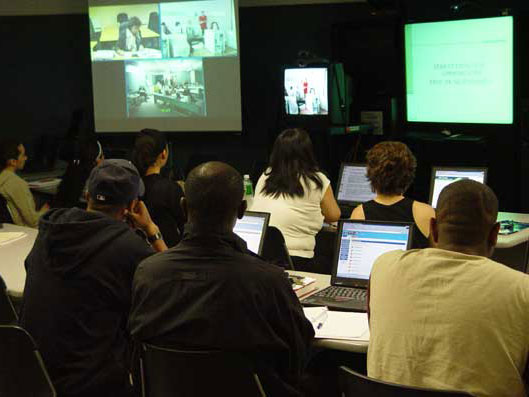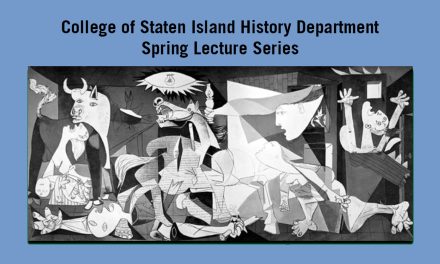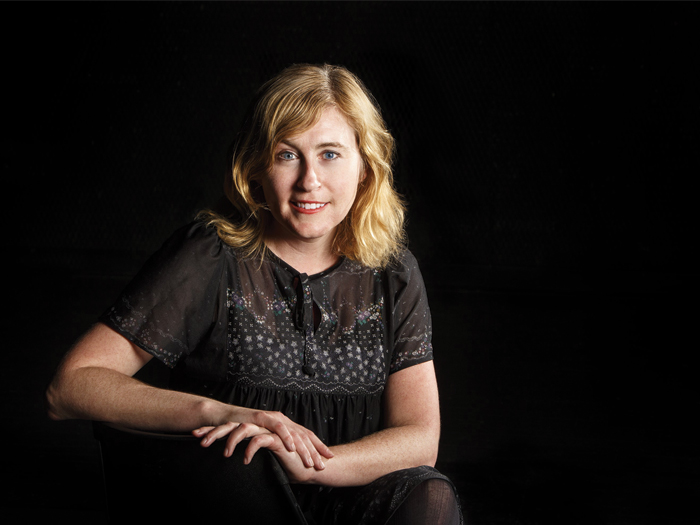For the past four years, students at the College of Staten Island have been able to attend classes in Turkey, China, Greece, Italy, and South Africa without having to leave the comforts of the College’s beautiful 204-acre campus. Thanks to the Virtual Classroom Project, where students at CSI link to higher education institutions in other countries, and students at those colleges also connect with them, everyone involved gains insights to other parts of the world that they previously only might have imagined.
Now, the Project, which is the result of a collaboration between Mike Kress, CSI Vice President for Technology Systems; Mark Lewental, the College’s Director of Media Services; and CSI faculty members (the late François Ngolet, Jane Marcus-Delgado, Catherine Lavender, and Emmanuel Mbah) has been honored by The City University of New York, which has presented the Virtual Classroom Project with a Ribaudo Award for Innovation in Technology. The award honors Michael Ribaudo, the late CUNY Dean of Computer Information Systems and Chief Technology Officer.
“This award means so very much to CSI because Mike Ribaudo was instrumental in developing our video conferencing facilities and he was a good friend,” Kress remarks. “Mike went ‘all in’ on the University-wide Media Distribution System, which formed the technology base for our virtual classroom more than a decade later.” In addition, Kress thanks “Professors Emile Chi and Roberta Klibaner, Ethem Kok, and Ann Helm for their assistance in recruiting our international partners.”
Since CSI became one of only ten colleges nationwide to receive support from the U.S. Department of State to participate in the program, the Virtual Classroom Project has been linking students at CSI to their counterparts at Kahir Das University in Turkey, Shanghai TV University in China, the American University in Rome, the American College of Thessonaliki in Greece, and Rhodes and Metropolitan universities in South Africa.
Through the Project, these institutions share students, faculty, lectures, curricula, and technology through a variety of technologies such as videoconferencing, email, Internet chat, and the Blackboard classroom management system, which provides students with access to class materials online. Interaction between students continues after class sessions via email and Blackboard technology.
Dr. Tomás Morales, President of CSI, notes that the Project’s connection to Turkey is “especially critical, as it has given [CSI] students an opportunity to collaborate with a primarily Muslim student body. There is perhaps no more important topic for our times,” he adds, “than improving the United States’ relationship with the Islamic world, and the [Project] has built invaluable and durable bridges toward that end.”



![[video] New Film Scoring Class Introduces CSI Students to Modern Age of Musical Composing](https://csitoday.com/wp-content/uploads/2013/01/Final-Project-Showcase-011613.jpg)













